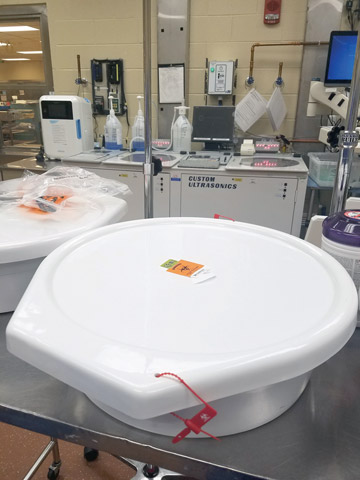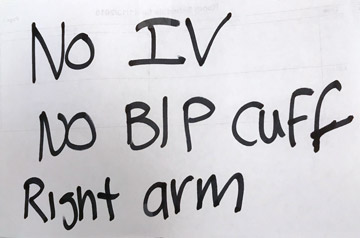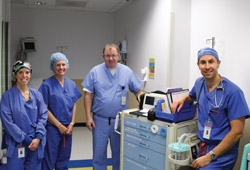Flexible endoscopes are notoriously difficult to clean, putting unsuspecting patients at risk of being exposed to infections by unsuspecting physicians. After a serious flexible endoscope reprocessing error at Baystate Medical Center in Springfield, Mass., the facility’s staff knew it had to immediately improve its entire high-level disinfection (HLD) process. Their efforts earned this year’s OR Excellence Award for Patient Safety.
Diane Betti, RN, MSN, CNOR, CSPDT, ST, and her team took on the task. They audited the situation and found numerous issues. “We didn’t have consistency in process,” says Baystate’s director of inpatient surgery, perianesthesia and sterile processing. “There were inconsistencies in the handling, transport and delivery of flexible scopes.”
The team delved into where in the process there could be potential breakdowns, assigning a code to each one that reflected the potential for it to result in patient harm. For example, a scope that wasn’t cleaned correctly would be assigned a different weight than mistakes in documentation.
Armed with that analysis, the team devised a comprehensive response plan that touched many departments, including sterile processing, clinical engineering, infection control, surgery, endoscopy, anesthesia and process improvement. Here are the key aspects of the new process.
- Limited access. The first change the Baystate team implemented addressed the relatively easy access to scopes, which led to them being all over the hospital and difficult to track down. “Before, pretty much anyone could go into sterile processing and obtain a scope simply by opening the door of the cabinet, and off it went,” says Ms. Betti. “If a scope was sitting on a counter in SPD, they could grab it.”
.svg?sfvrsn=be606e78_3)



.svg?sfvrsn=56b2f850_5)